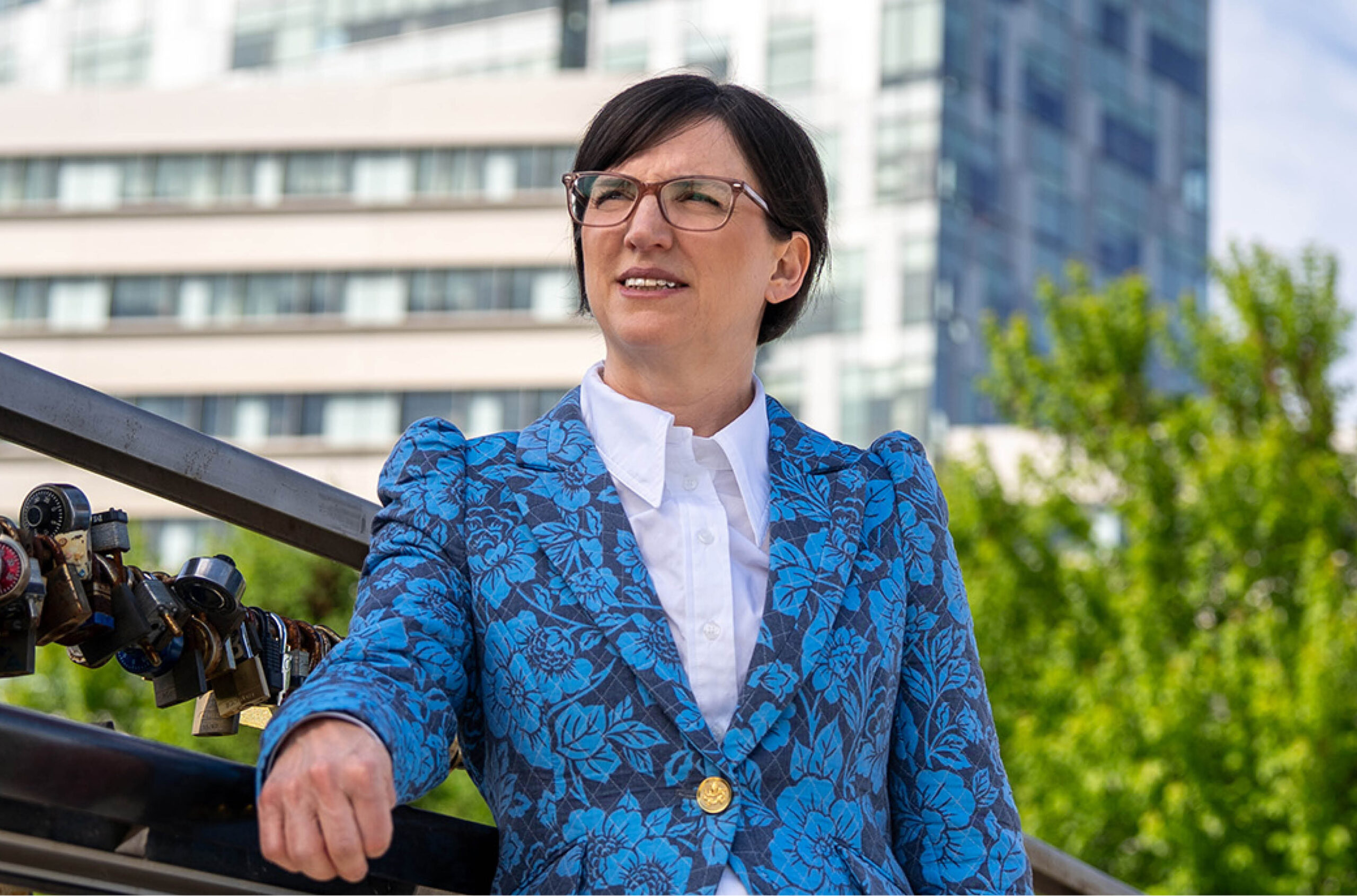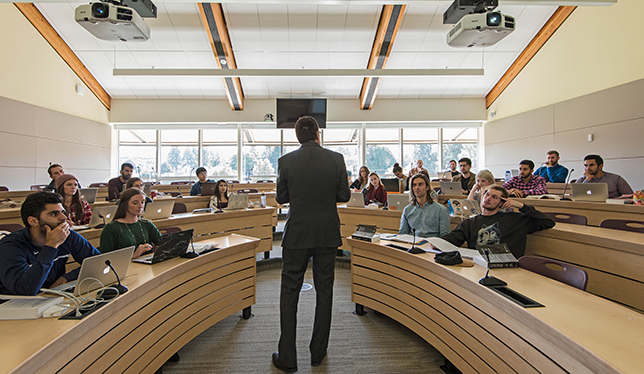To thrive this fall, universities and colleges are going to need to embrace hybrid
The lockdowns over the past year have reinforced the need for ongoing, equitable access to high-speed connectivity.

Postsecondary institutions are seeing big changes play out on their campuses as they settle in to their “new normal” on campus.
In Fredericton, St. Thomas University is getting ready to support international students needing to spend two weeks in quarantine, Wilfrid Laurier University is holding COVID-19 vaccination clinics for students, faculty and staff throughout the summer and fall, and several other universities are assessing or upgrading their ventilation systems before new semesters start.
There is no doubt that the landscape of education and the campus experience has changed forever. As we continue to reimagine education and step towards reopening campuses, here’s what lies ahead.
Hybrid learning is here to stay
School buildings and university campuses will not disappear – they play a critical role in building school communities and are important social centres. Instead, we can expect that education will shift to blended physical and digital experiences that students navigate over the course of a lifelong relationship with a postsecondary institution – from recruitment to education to alumni relations.
Universities and colleges are competing like never before to attract students. Being able to offer convenient, fast and virtual services, such as personalized messaging, digital admissions, and online and onsite course offerings to students anywhere in the world can give institutions a leg up on recruitment and retention.
When it comes to the lecture hall, seminar or lab, providing an inclusive experience for both remote participants and participants will remain critical. Students may not be able to attend class for a variety of reasons – whether it’s sickness, snow storms or personal conflict – and offering flexibility through a collaboration platform like Cisco Webex can improve engagement and support overall student success.
But hybrid learning doesn’t just offer a more flexible learning environment for students and educators, it can also play a significant role in a safe return to campus.
Best practices are safe practices when it comes to reopening
As everyone continues to do their best in minimizing the spread of COVID-19 and its many variants, the future remains hard to predict. Potential outbreaks may occur at any time, which has the potential to lead to partial or full campus closures. Taking a hybrid approach to teaching and learning can play an integral role in the coming year to deliver uninterrupted learning for all, and help postsecondary institutions to continue to thrive – no matter what the future brings.
Ensuring that a platform like Cisco Webex is in place let’s educators and students smoothly transition to a remote learning scenario, while also creating innovative virtual environments that go beyond lectures and projects to better engage students through huddles, videos and interactive activities.
As institutions consider long-term hybrid solutions, virtual collaboration tools can play an important role, connecting distant campuses, remote students or researchers from other institutions. But doing so also requires us to ensure that hybrid learning is an accessible experience to everyone.
Continuing to bridge the digital divide
The lockdowns over the past year have reinforced the need for ongoing, equitable access to high-speed connectivity. To offer a truly inclusive hybrid learning experience to students, they must have access to the internet that can support remote learning experiences.
Currently, 86 per cent of households in Canada have access to 50 Mbps service, but this number falls significantly in rural areas where only 40 per cent of households have access to this type of high-speed internet. Once more, these standards are rapidly changing. As applications become more complex, more data will be required to support new experiences.
The reality is that internet connectivity is woven into the fabric of education. Access to affordable and reliable internet is needed whether the experience is in person, virtual or a combination of both. It’s critical to the admission process, completing assignments, conducting independent research, and collaborating with classmates.
The public and private sector must work together – through projects like the Universal Broadband Fund, which is designed to help connect all Canadians to high-speed Internet – to provide equal learning opportunities to students wherever they are.
We can’t be certain what the future holds; but taking steps to ensure that students and educators have the ability to keep up with learning, whether in person, remote or hybrid, will be critical as we return to campus this fall.
For more on how Cisco can help you reimagine education with in-person, distance, and hybrid learning, click here.
Brad Saffer is a global education strategy lead at Cisco.




Post a comment
University Affairs moderates all comments according to the following guidelines. If approved, comments generally appear within one business day. We may republish particularly insightful remarks in our print edition or elsewhere.